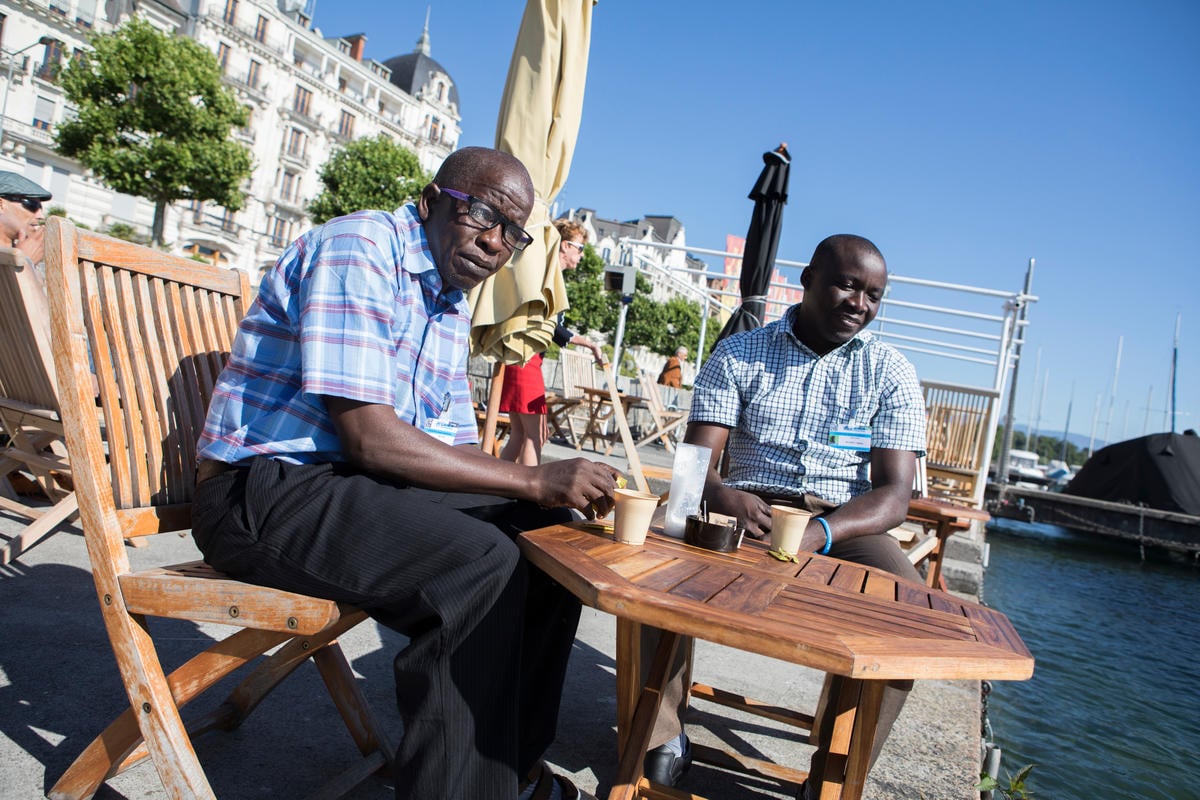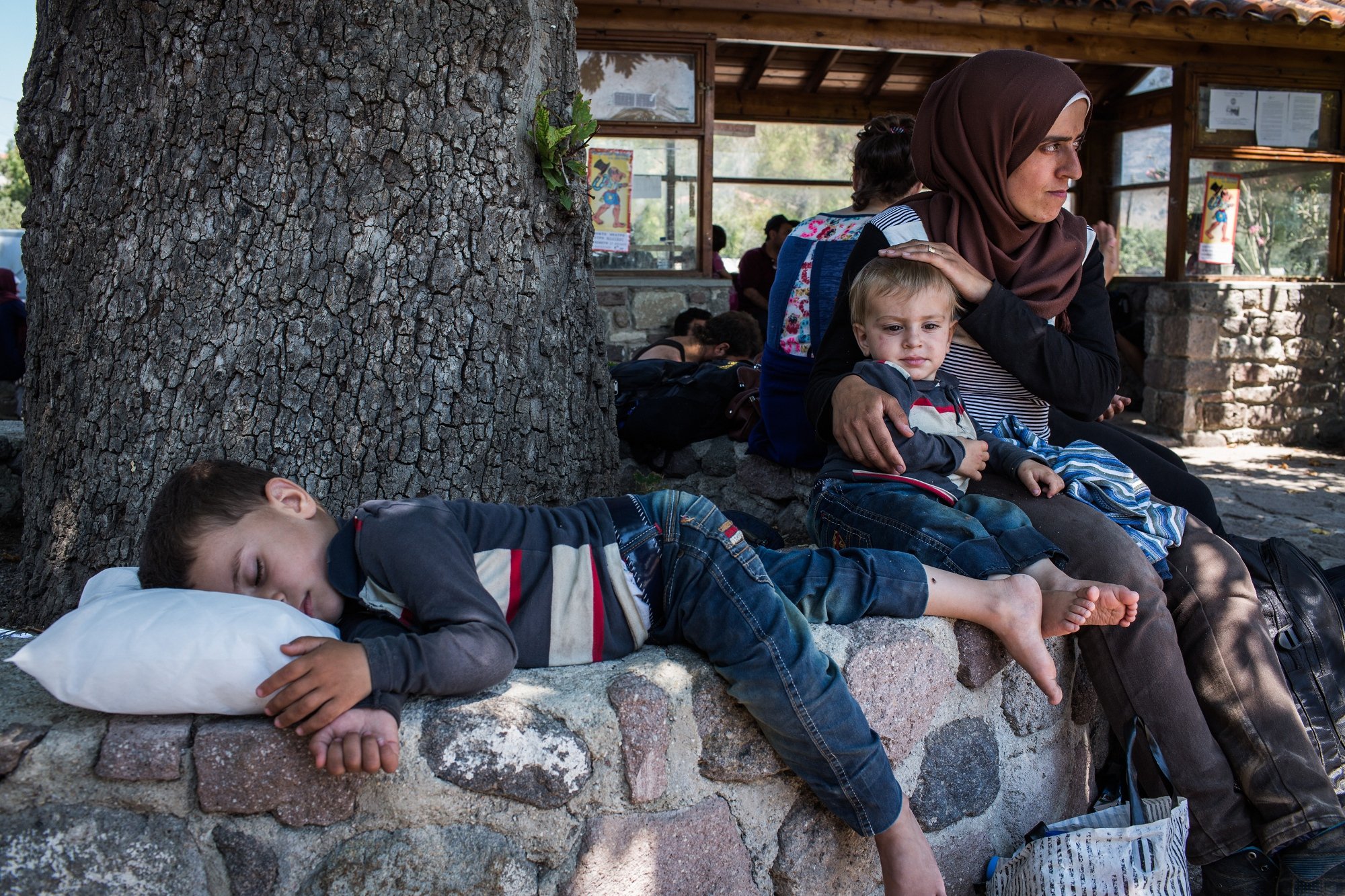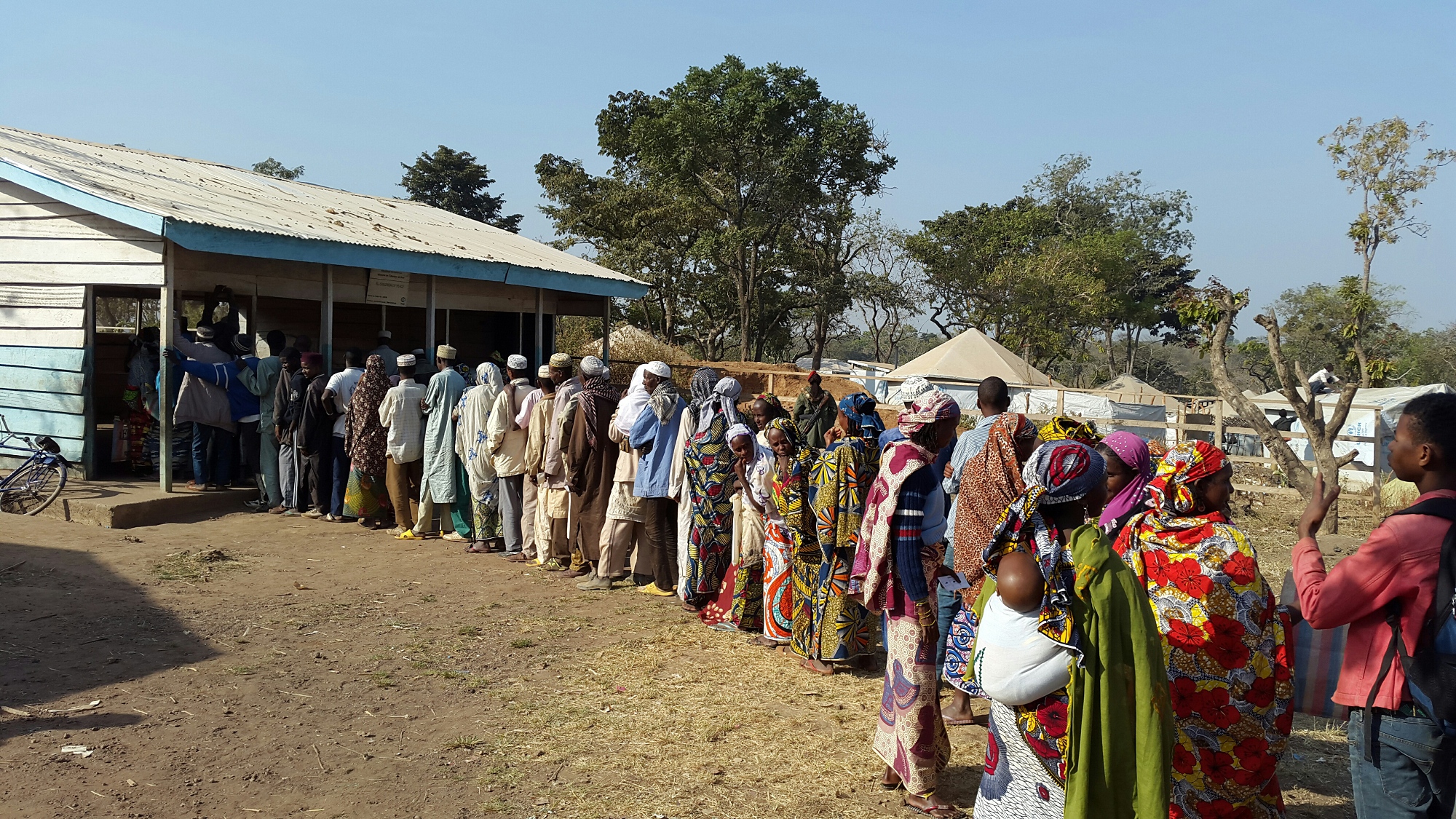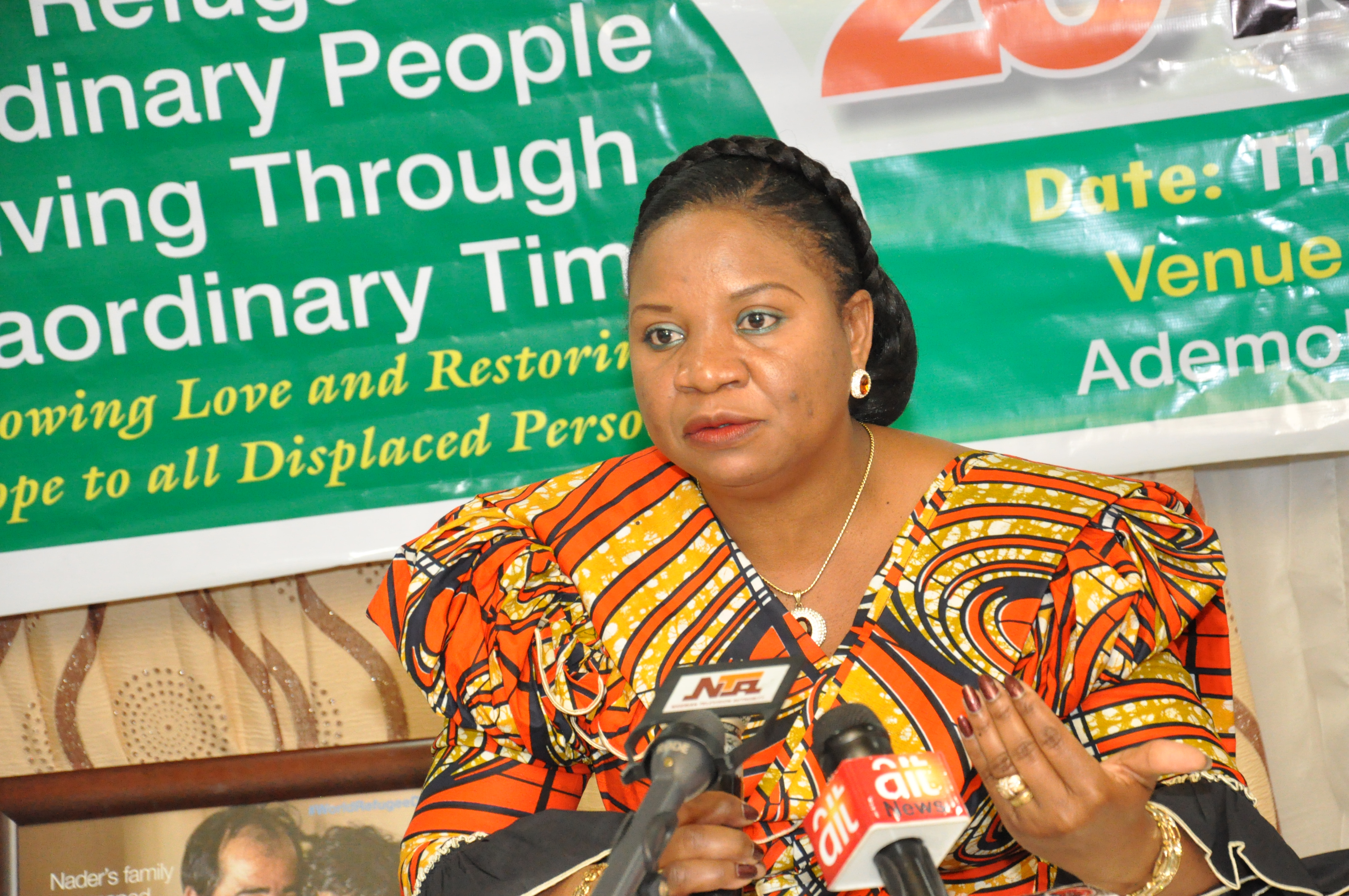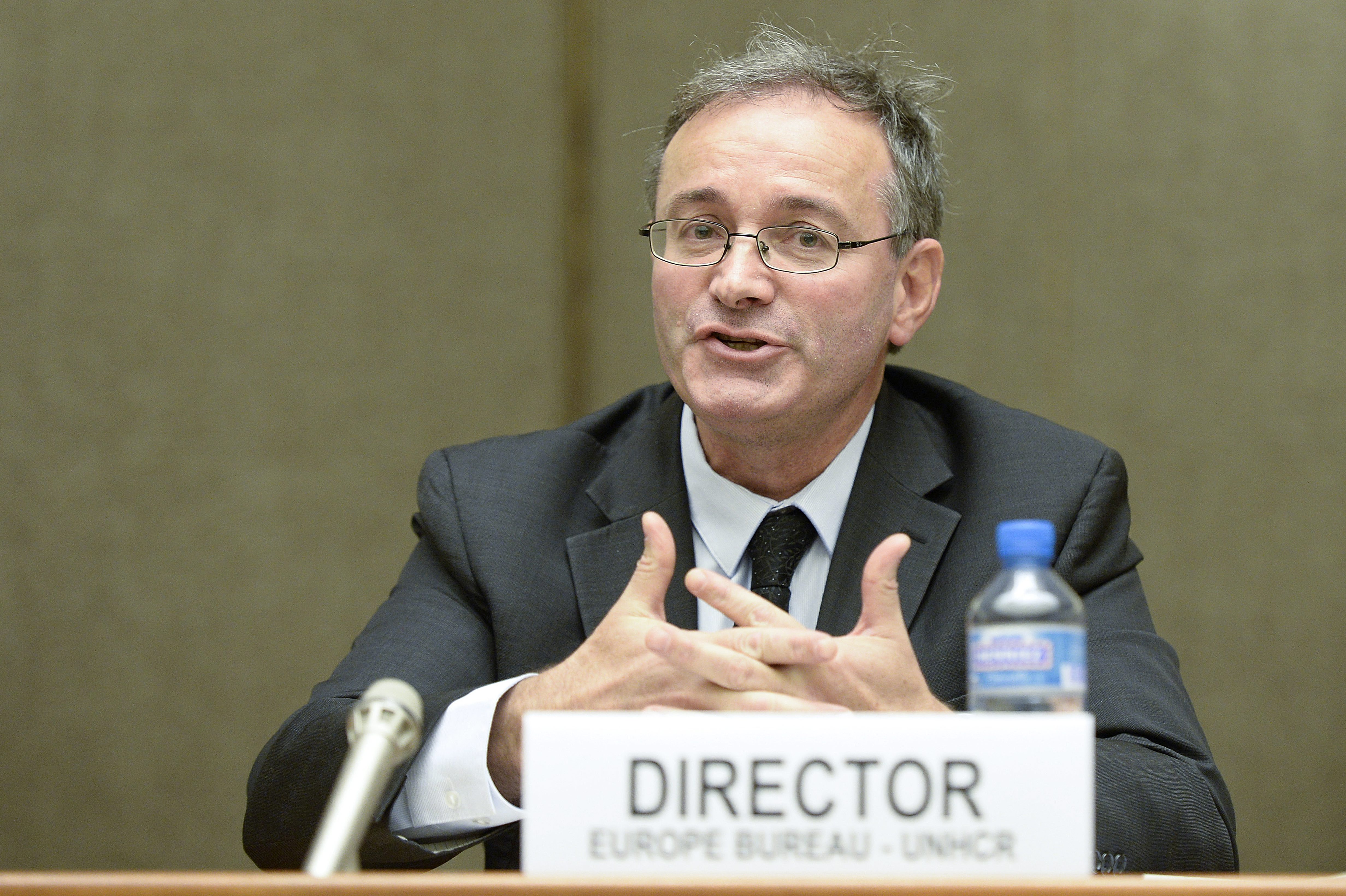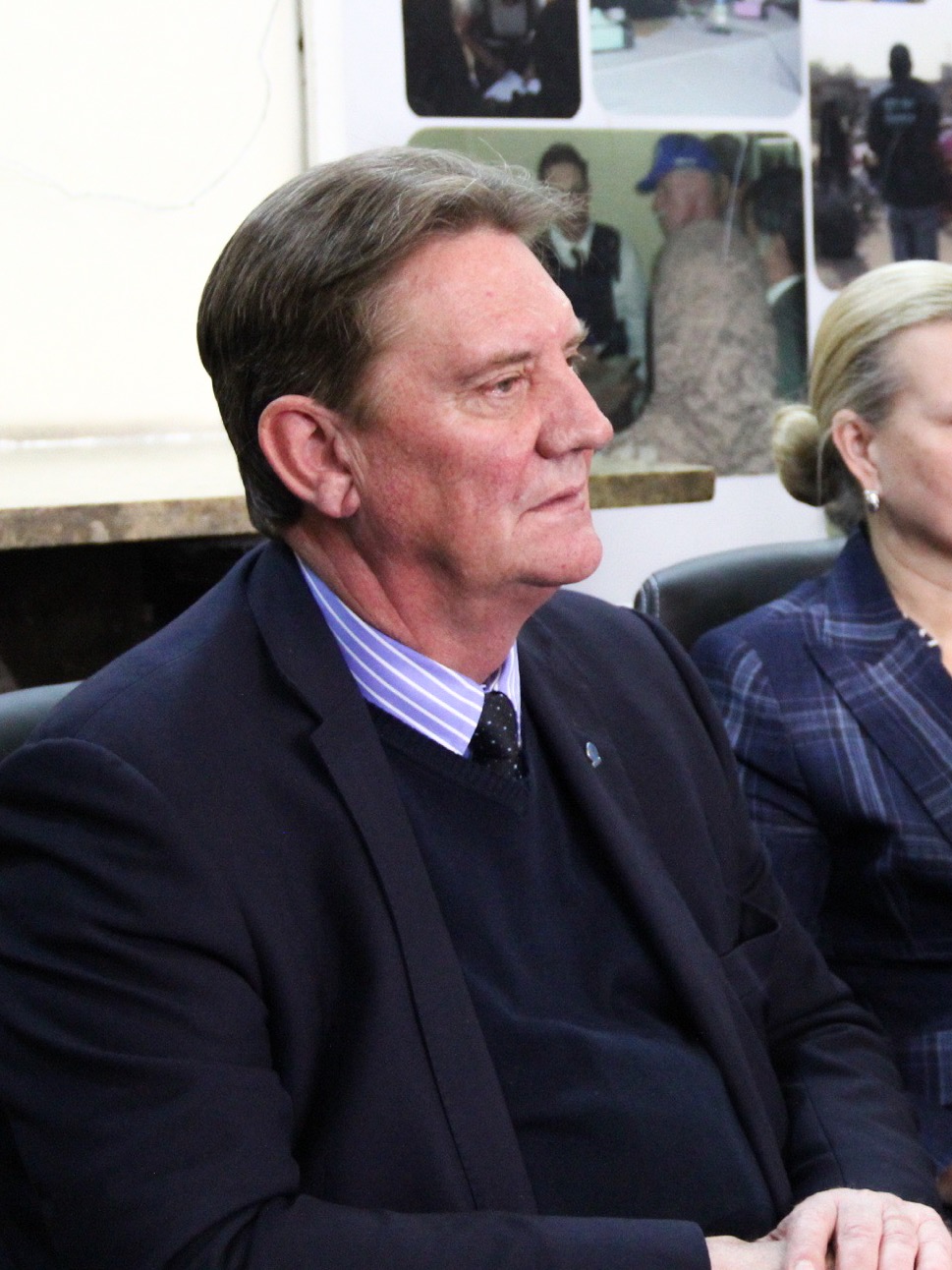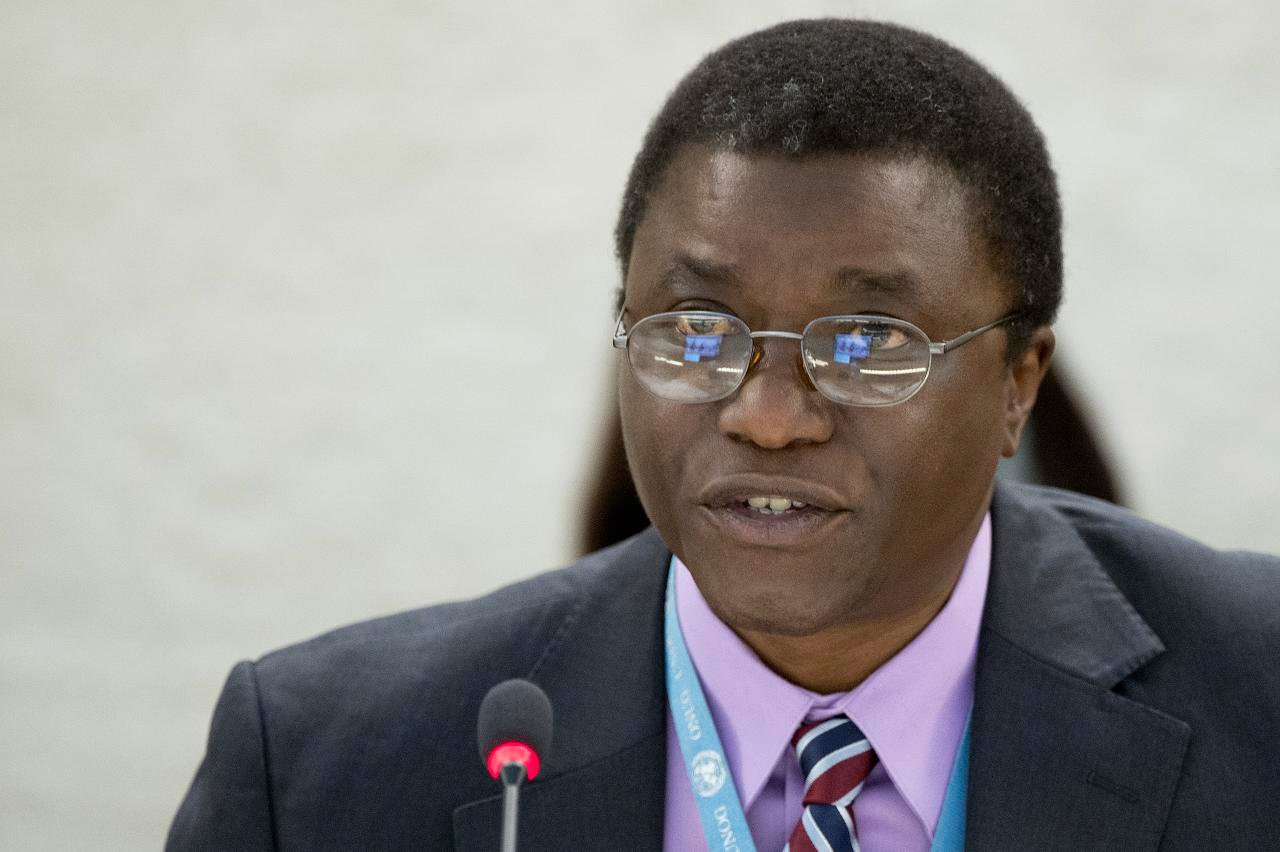Q&A: A school in the US town of Decatur offers refugees a top education
Q&A: A school in the US town of Decatur offers refugees a top education

DECATUR, United States, July 28 (UNHCR) - The publically funded International Community School is located in the city of Decatur in Dekalb County, Georgia, one of the largest refugee resettlement areas in the United States. It was set up in 2002 to provide a top international primary education to a mix of US-born local children and young refugees and immigrants. One of the pupils, 4th Grader Genevieve Wilson from Liberia, won first prize this year in a UNHCR World Refugee Day poster contest sponsored by Goodwill Ambassador Angelina Jolie. UNHCR Public Information Intern Nicole Pham spoke with Laurent Ditmann, a native of France and principal of the school.
What makes ICS unique?
What makes ICS very special is this idea that we maintain something we call intentional diversity. We have ethnic, national, linguistic, religious and socio-economic diversity. We want to recognize each individual child. One thing that is very specific to ICS - I call it the ICS way - is the individual touch. No two kids are alike and we want to recognize that. The purpose of this is to create a different type of community. I would say the most important word in the name of our school is community.
What distinguishes ICS from the other schools in the area?
What we offer is a public, free tuition environment where refugees are not segregated, ostracized and asked to 'assimilate' in very little time without receiving the tools necessary for acculturation. ICS offers a balanced mix of American-born children and refugee children in which students learn from each other and feel included and respected in the context of a larger community.
Tell us a bit more about the student population.
We have 395 students in kindergarten through 6th Grade, with three sections per grade level. The students come mostly from the direct vicinity of the school: Decatur, Avondale and Clarkston, which is the centre of the refugee population of Georgia with around 30,000 refugees. We currently have about 35 nations represented. Over the years, we've served students from well over 50 nations. Currently, the largest group is from East Africa, mainly Somalia, Ethiopia and Eritrea, and West Africa - we have a sizeable group from Liberia as well as Sierra Leone. We have a fairly substantial group from Burundi as well as from Myanmar.
How did the school come into existence?
The school was created because a group of people, about 10 years ago, felt that the local school system did not address the needs of survivors of war, these traumatized children. They decided to create a school where the communities would mix in order to create a space where all cultures would be valued, studied, discussed, and people could learn from each other.
What is it like for the refugee children who have just arrived at ICS?
Refugee children are not set aside. Of course there are kids who come to the school speaking little or no English, so we have a quite intensive English for Speakers of Other Languages programme. All other classes are taken with the rest of their schoolmates because we want them to be a part of the community and interact constantly with the other kids. We acknowledge that refugee children, because of the trauma they may have experienced, need some special attention. So, for instance, if they need additional mental health support, we have a counsellor who takes care of that. We also have a family outreach person who will go into homes of refugee families and address cultural issues.
What qualities do you look for in your teachers?
We hire people who have a strong commitment to the place . . . The teachers must have, in one form or another, international experience. The diversity of the student body is reflected in the diversity of the staff. We have people from many different countries, including Bosnia [and Herzegovina], Iraq, Kyrgyzstan, France, and more. The most important thing is that they need to have a certain commitment to intellectual and ethical values. We believe that as adults we create an environment in which the kids have to flourish. So if we don't create the right environment, the kids won't learn.
Has the Decatur community been supportive of your school?
Decatur, as well as Clarkston and Avondale, has been extremely supportive. I would say that anybody who hears of our school tends to become engaged in one way or another. People are very receptive to what we do and want to pitch in and participate because they see that we are a lot more than just a school.
What does ICS give back to the community?
I think community is a two-way street and, first of all, I should say that we've been given a lot by organizations, corporations and individuals. I think that what we give in return, hopefully, is a model. We are a model for community building and we want to help other organizations, including non-profits, corporations, etcetera, who are looking for a different way of "doing diversity," for lack of a better phrase, to create a community. What we offer is a very pragmatic model. What we're trying to show people is that what we do, anyone can do, regardless of where you are and what your function is.

